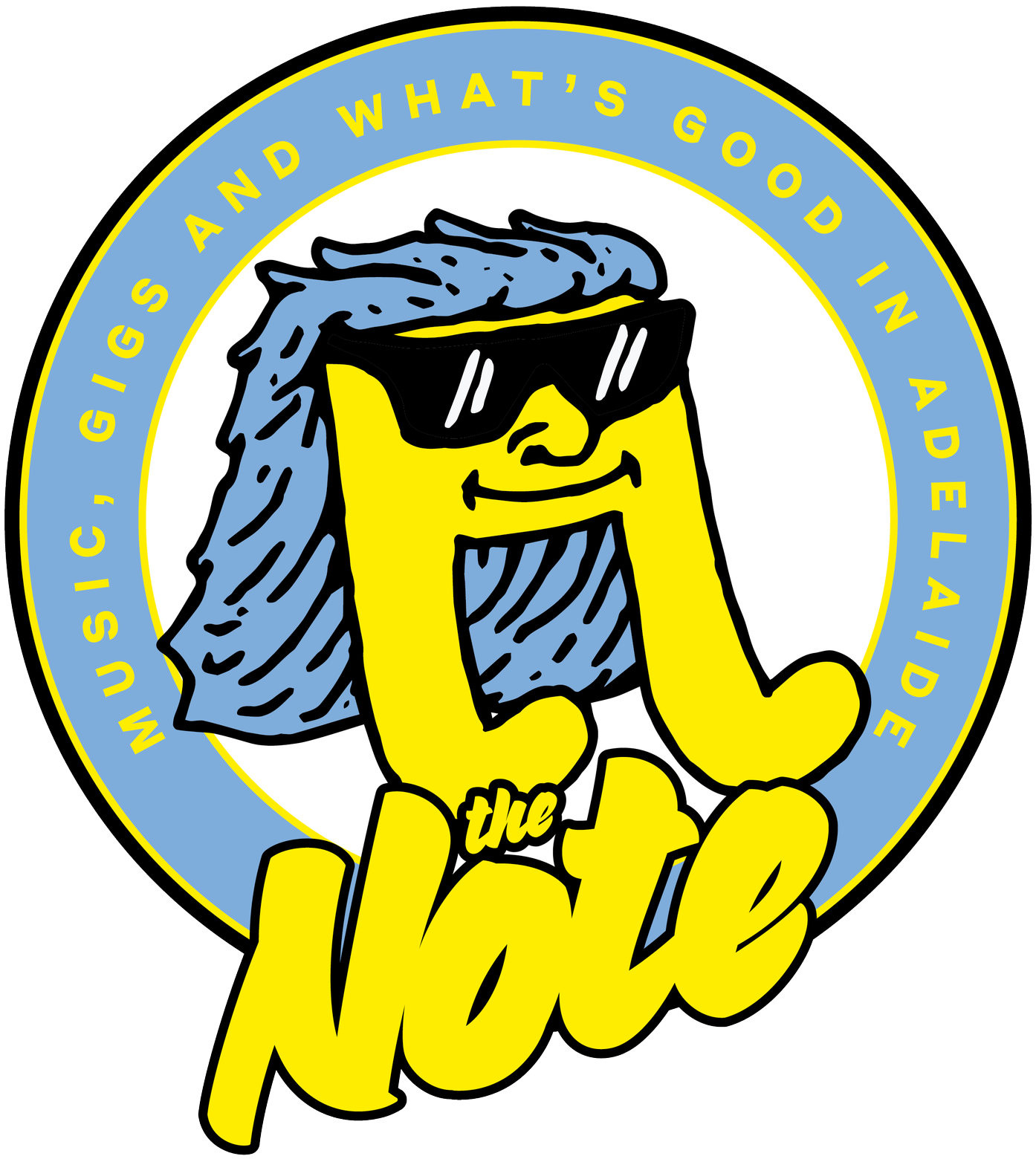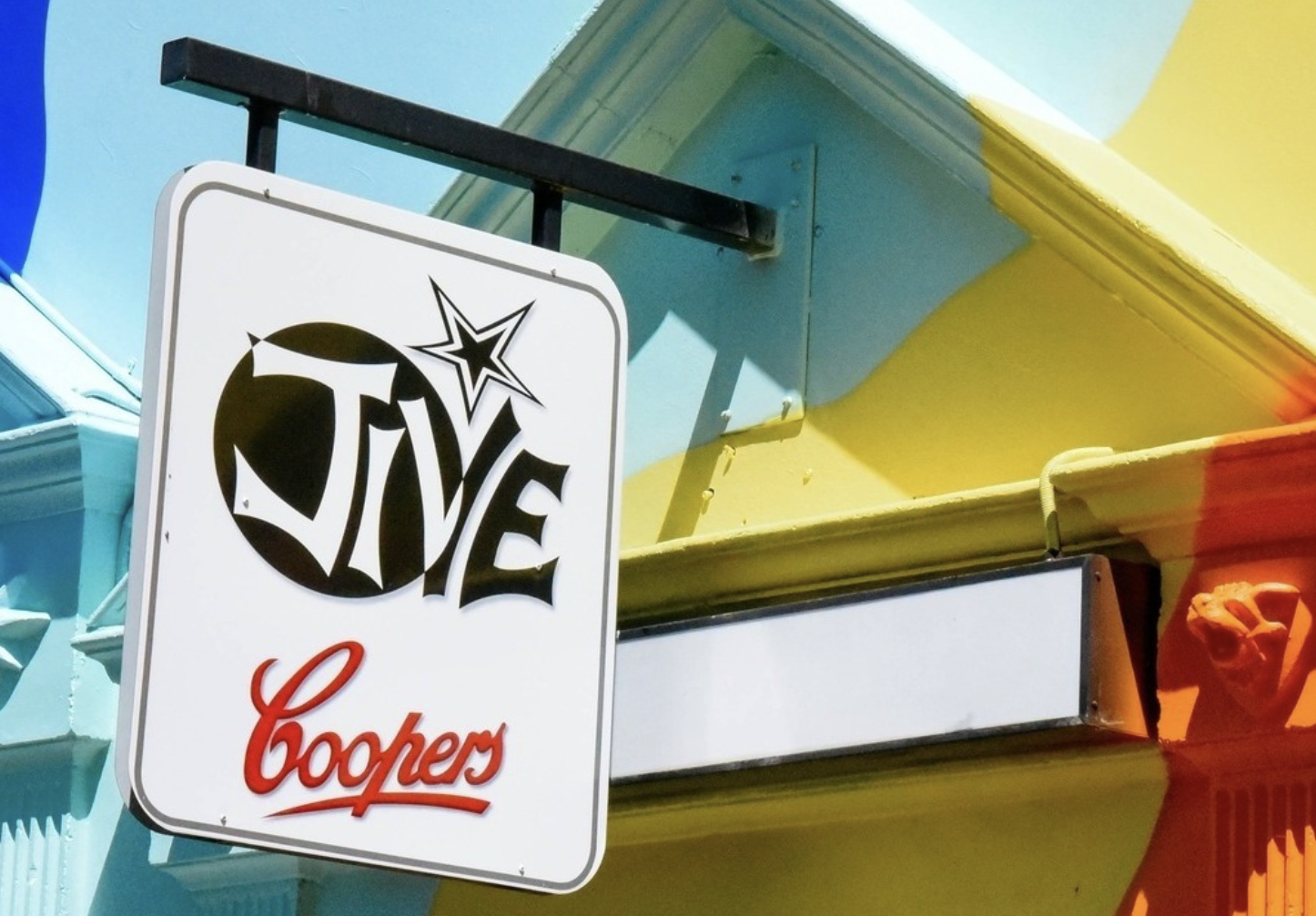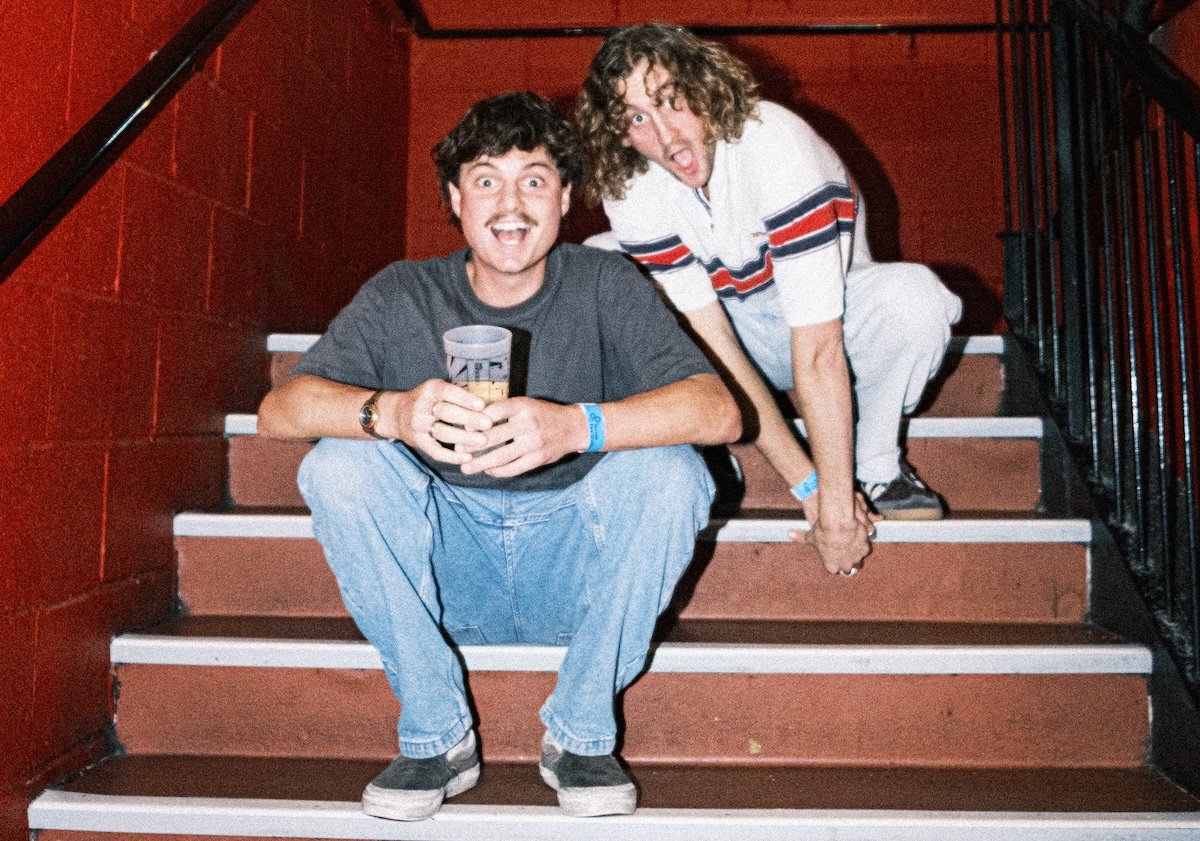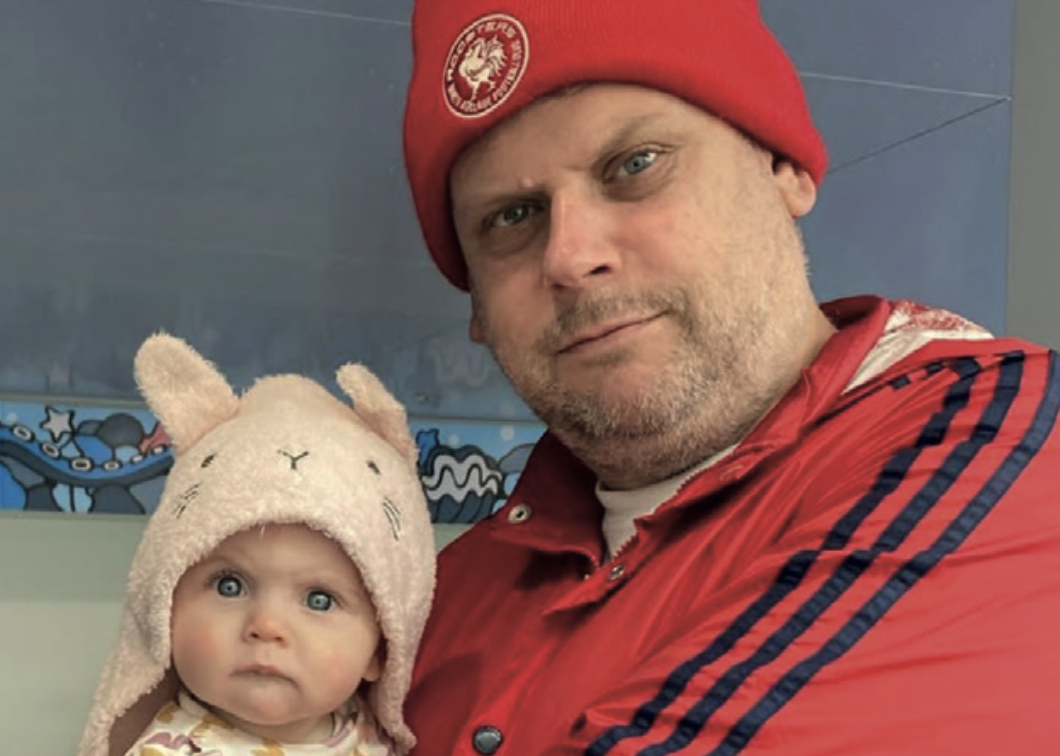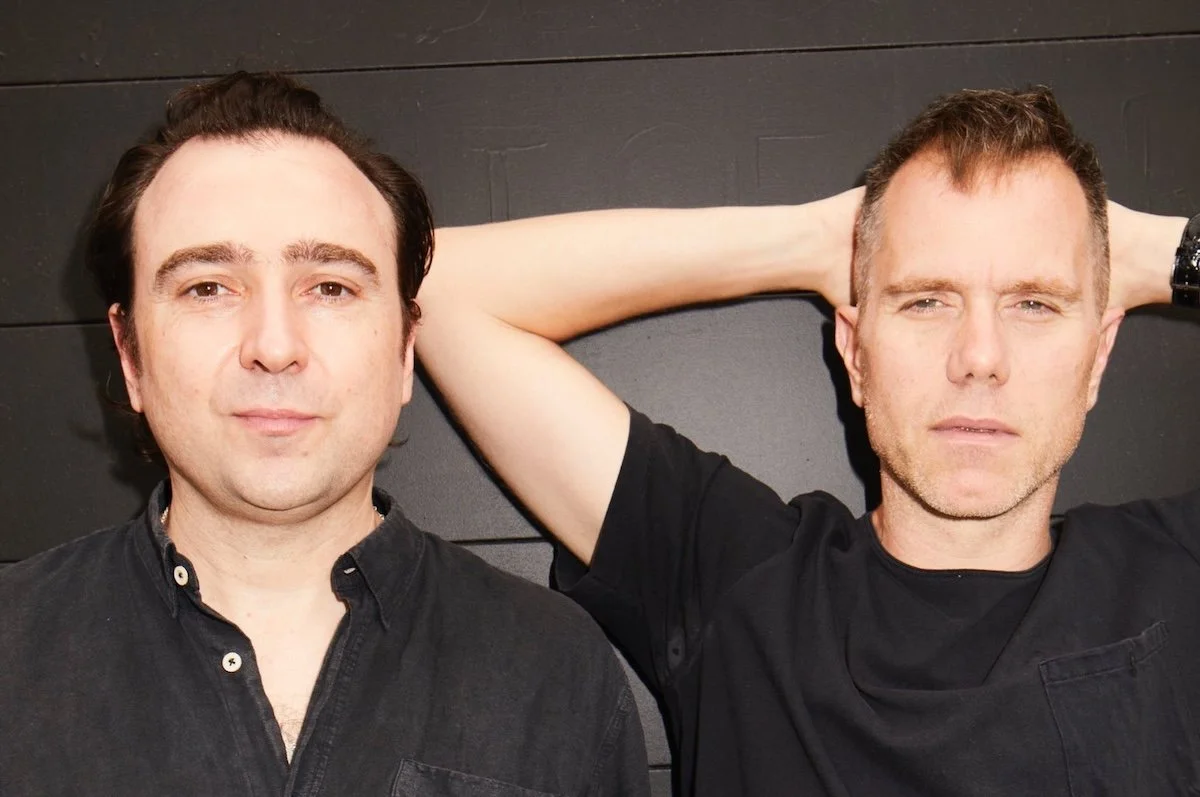Radio Free Alice on ‘Polyester’, Post-Punk and Why London’s Calling
The five-piece play the Crown & Anchor this September 5.
Interview by Zara Richards⎜Photos by Madeleine Purdy
Radio Free Alice are a force. Buoyed by a sound that could’ve been born in the backstreets of London’s post-punk scene and songs that are determined to get under the superficial sheen of society, this quintet have been carving out their own version of success since 2020.
Now, they’re back in our earholes with their sophomore EP Polyester: a four-track record that examines human emotions – anger, love, friendship, jealousy – and how they intersect with the relationships we hold.
To celebrate, the five-piece – comprising Maayan Barnatan, Michael Phillips, Jules Paradiso, Lochie Dowd and Noah Learmonth – are touring Australia, making a pit-stop at the Cranker on September 5. Here, songwriter/vocalist Noah unpacks ‘Polyester’, their London sound and why he finds post-punk beautiful.
Congrats on the release of ‘Polyester’! Tell us how this record came to life.
In a way, we wrote it ages ago. We’ve been playing it live, evolving and tinkering with it. We recorded a lot of it in Melbourne but we also recorded some on tour, in London, with a producer called Ewan Pearson. In Melbourne, we recorded with Nao Anzai. It’s great to have it out. We’ve lived with these songs for so long that by the time we got into the studio, they were very much fully formed.
You’ve weaved some deep perspectives throughout these tracks – especially with ‘Spain’ and ‘On the Ground’, but even religious elements in ‘Johnny’. Where do you draw from when you write? Why do these types of observations interest you?
At the time, I was reading a lot of Mark Fisher and he really changed my perspective on how capitalism has affected music over time. It’s affected society at large, but it’s specifically shaped music. It got me thinking about the role of money as something that’s not only a currency for materials but it’s something that shifts culture and social dynamics. So I was already in that mindset.
With ‘Spain’, I remember seeing an upper-middle-class family have an argument in an exotic European town, and I was amused by the idea that a staple of middle-class success is being able to go somewhere like Spain and spend the whole time arguing. You see it all the time. I’m from a middle-class background and I’ve experienced that. If you’re so privileged that you can take [travelling] for granted to the extent you can spend the whole time arguing, that's when you know you’ve made it. I thought it was a funny idea that the classic cliche of a rich guy promising to take you out of here, I can give you this money and we can be so wealthy that we could be arguing in Spain. How money can be used to manipulate is so dark and interesting to me.
Why do you think you gravitate towards post-punk to communicate these ideas? Why does it make your brain tick?
The real answer to that is that I love the genre. It’s always been my favourite genre. I described it to someone else as having the anger and energy of punk, but there’s a dorky anxiousness about it that pairs really beautifully with that anger. Maybe I’m just an angry, awkward person? But I find there’s something really beautiful about that dynamic. You know, to quote John Lydon, ‘Anger is an energy’ and there’s something very profound in that. Significant social change has occurred usually due to an outburst of anger, it’s an essential emotion. But post-punk is considered anger, it’s not thrash. It’s intellectually angry and that’s something that’s very sexy to me.
London and Europe played a big part in the end half of this record – how do you think the cities, culture and atmosphere over there influenced the final product?
London is the Mecca of post-punk. More broadly, I consider London the church of indie-rock and alternative culture. I’ve always had a fetish for British subcultures, everything from skinheads and mods. I associate that with London. So just being in that space where all that history of British alternative cultures was very inspiring. And there’s a lot of good bands there. I still revere it.
Melbourne has an amazing music scene, but there’s a higher ceiling in the UK because it’s a bigger industry. When you go there, you realise, ‘Wow I thought we were kind of successful, but we’ve barely climbed the mountain.’ You get a new conception of success when you go to the UK as a band.
I can see why your sound has clicked in the UK. Would you be open to recording more over there?
We want to move over there at some point. Well, we will move over there. It’s just a question of when – when makes the most sense. I’m still at university, which is so annoying and problematic. At the first possible moment where it realistically makes sense to do it. And I think that will be at some point next year.
Why do you want to move?
Realistically, I love Australia and will always keep coming back to Australia. But if you’re big in Australia, you’re only big in Australia. Whereas, if you’re big in the UK, that goes into Europe and Europe goes into the rest of the world. There’s a bigger market. My thoughts on this move were definitely solidified with the recent Armageddon: Splendour, Groovin, Spilt Milk. Byron Bay Blues Festival is having its final year. I love the idea of us staying and trying to help it, but at the moment, you’ve got to go where the weather is and it seems a little infertile at the moment in the Australian industry.
You’re playing the Cranker on September 5. What should people expect from the live show?
Authenticity sounds like a cop-out of an answer. A healthy dose of chaos and fun. It’s just really good music. Every night is different because it’s a very organic thing. We don’t rehearse performing. To me, that is a bit Patrick Bateman. You don’t practise performing, otherwise, it’s performative – it shouldn’t be a performance, it should be a little bit more real than that.
What’s next for you musically?
Finish writing an album and record the album. Do a tour and some festivals. Hopefully go back to Europe but we might have to get some more cash from the government to do that so we’ll see. But that’d be amazing. Time will tell.
Radio Free Alice play the Crown & Anchor on September 5 with Gallery One on support. Tickets on sale now.
